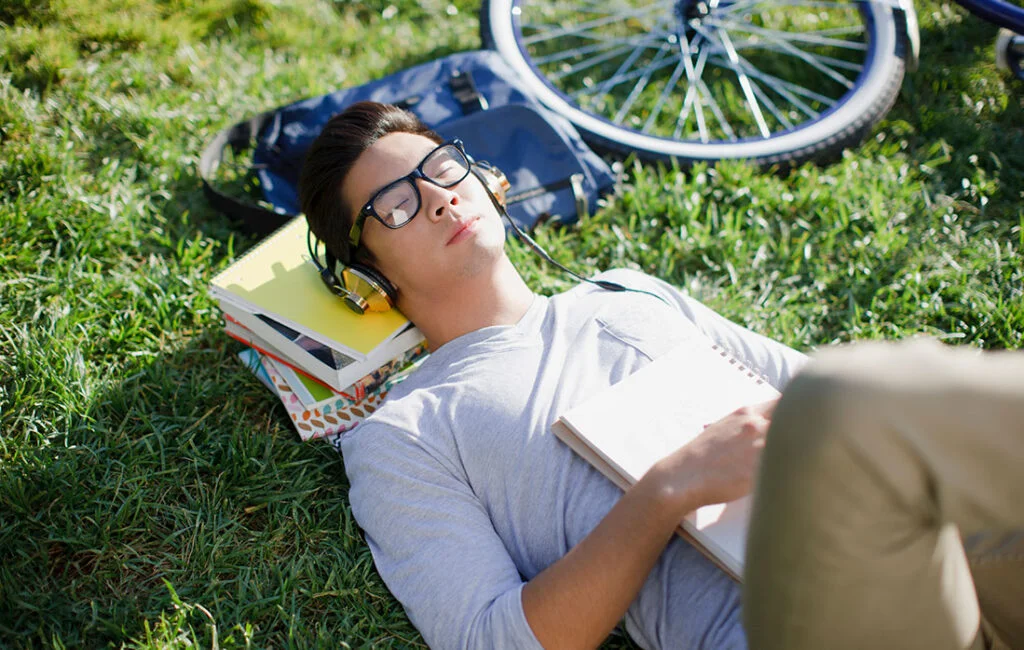
Boarding school may not be an option for everyone, but for teens struggling with sleep, a new study says the routine of a residential school might help them get more rest. In a study recently published in the British Journal of Educational Psychology, researchers at the University of Southern Australia found that boarding school students slept about 40 minutes more per night than their day student peers. (1) Although there were no significant differences in the depression and anxiety surveys between the two groups, the study did find a connection between students who slept more during the week and better psychological well-being.
Details on the High Schooler Study
The study looked at 309 individuals at a co-ed school in Adelaide, Australia. The group consisted of 59 boarding school students and 250 day students and all who participants completed the School Sleep Habits Survey, the Depression Anxiety Stress Scale 21 (DASS-21), and Flourishing Scale. Additionally, boarding school students completed the Utrecht Homesickness Scale and some participated in focus groups.
The boarding school teens tended to go to sleep earlier and wake up later than their peers. According to one of the study’s researchers, Dr. Alex Agostini, the rules and structure in boarding school is a likely factor. In a recent press release, Dr. Agostini says, “Nighttime routine and restricting technology seem to be the key to better sleep and this was borne out by feedback both from the students surveyed and the focus groups we interviewed.”
But What Kind of Sleep Do All Teens Need?
Teens need between 8-10 hours of sleep per night, but many don’t get the recommended shut eye. In fact, a study by the CDC suggests that nearly 70 percent of 13-18 year olds sleep less than eight hours per night. And that lack of restorative sleep can have consequences across the board. According to the American Academy of Sleep Medicine skimping on rest can cause issues with academic and athletic performance as well as health and behavioral issues. Teens who get less sleep may have trouble focusing, have an increased risk for conditions such as hypertension and diabetes, and are more likely to experience mood disorders such as depression.
The extra 40 minutes of sleep per night for boarding students appears to be closely connected to bedtime routines. At most residential schools, students are required to adhere to a strict lights out schedule which may not be present at home. And boarding schools often have stricter technology rules as well. With staff monitoring in the evening, there are fewer opportunities for late night videogames or texting. A female 10th grade study participant agrees this can have a positive effect on sleep. In the published study, she is quoted as saying, “In an ideal world, if you take away that mobile distraction for like the hour before and after bed (implement stricter rules), that would be a great thing.” The regular nighttime routines and limits of technology seem to cancel out the potential drawbacks to boarding school dorms such as noise.
While a routine is important, biology may play a role in less than ideal teen sleep. During puberty, the body’s circadian rhythm resets, which can make teens want to stay awake later at night and sleep later in the morning. This shift may be due to the hormone melatonin, which is released at night and helps us fall asleep. For teens, melatonin seems to be released later than younger children or adults. Add in increasing academic pressures, sports practices, after school jobs, and time with friends and it’s not hard to see why some teens may have a hard time hitting the sheets early. Living at school may make things a little easier by having everything all in one place.
Tips For Teens
Of course, not all boarding school students get enough sleep. Some students may experience homesickness or other challenges that make it difficult for them to rest. Whether they’re living at home or at school, there are some things all students can do to get a better night’s sleep including:
- Maintain a consistent sleep and wake schedule; go to bed around the same time and wake up at the same time, even on the weekends.
- Avoid large meals, caffeine, and alcohol before bed.
- Keep your sleeping space quiet, dark, and at a comfortable temperature.
- Maintain your bedroom only for sleeping; leave electronic devices such as televisions, laptops, and smartphones in another room.
- Get regular exercise and maintain a healthy lifestyle.
Sources
1. Reardon, A., Lushington, K., Junge, A., Crichton, J., & Agostini, A. (2023). Boarding versus day-students: A mixed-methods analysis of sleep and its relationship with psychological distress. British Journal of Educational Psychology, 00, e12624. https://doi.org/10.1111/bjep.12624


























